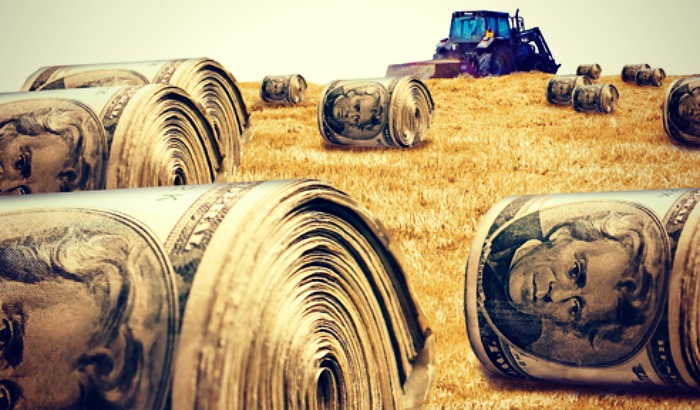Last Updated on Apr 7, 2020 by James W
Organic agriculture is a growing profession, becoming more popular worldwide. By the end of 2014 there was 43.7 million hectares of organically cultivated agricultural land around the globe, managed by 2.3 million producers, and that number keeps on growing. One could think that the increased competition makes this sector unprofitable, but organic farming is still a great career choice. The demand for healthy unprocessed food is more present than ever, and with organic food becoming a part of the mainstream market, it is starting to feel like a goldmine for farmers (and beginners) willing to grow food the “green way???. If you are one of them, here are some things you should know.
Think of the Business Aspect
If you really want to start a profitable organic farm, you need to think about it as a businessman. What is your reason to grow healthy food? Is it because you want to have enough to feed your family? If that is the case, it is better to focus on farming as a hobby. However, if your goal is to generate profit, then you should be willing to observe it just like any other business, with analyses, calculations and a forward-looking approach.
Determine Your Goals
If your goals are too broad, you will have a hard time focusing on them. Narrowing your choices down to a few specific objectives will help you fulfil each of them. The most important thing to know is what you want to grow. Start with something you like, because that will make your job easier and your product better. If you like berries, think about organic strawberries. If you don’t like being around animals or if you are vegetarian, don’t even think about starting a livestock farm. Some other things you should think about are post-processing, market, acquiring skills, etc.
Expand Your Knowledge
What’s there to know about? You’ve already had a container garden on your balcony and it worked pretty fine. Well, people who choose organic farming as their profession have intimate knowledge of the soil and life cycle of the plants they’re growing. They are also accustomed to working outside (e.g. planting and harvesting). You don’t need a diploma to become a farmer, but reading books and articles about this topic can’t do harm. Also, it is useful to contact other farmers in your area, to pick their brains for knowledge of the soil condition, climate, crop varieties, market opportunities, and other useful things.
Get to Know Your Soil
Soil is, besides the climate, the most important factor that will impact your choice of crops, as well as your approach to cultivation. Despite the information you received from local farmers, you should still perform soil analysis to figure out its type, because the soil preparation will largely depend on the soil’s chemical features. For example, if you have acid sulfate soils on your development site – you need to handle it properly in order to neutralize acid production. If acid sulfates are located bellow the water level, you have nothing to worry about. However, there are numerous possible cases, so it’s best to consult professionals like geotechnical engineering experts from Douglas Partners.
Get to Know Your Plants
As soon as you find compromise between the plants you want to grow and the plants your soil and climate allow you to grow, you should get familiarized with different conditions different plants require to thrive. Every plant you choose will have its specific requirements with regards to watering and nurturing. If you are growing more than one plant crop, make sure you don’t plant two types with different requirements next to each other.
Certification and Licensing
You can be an organic farmer without having a certificate, but a certificate can help you sell your product somewhere other than on a farmer’s market, and gives you the possibility of increasing the price of your products. Other licensing issues you need to consider are land zoning, farm labor, fuel storage, liability and property insurance, retail food license, and business-related authorizations.
If you are planning to pursue a career in organic farming, the one thing you should remember is that there are no shortcuts. The use of chemicals, such as pesticides, is everything opposite of organic so don’t fall to the temptation of adding chemical fertilizer to make your plants grow faster. Greener is more important than faster.




